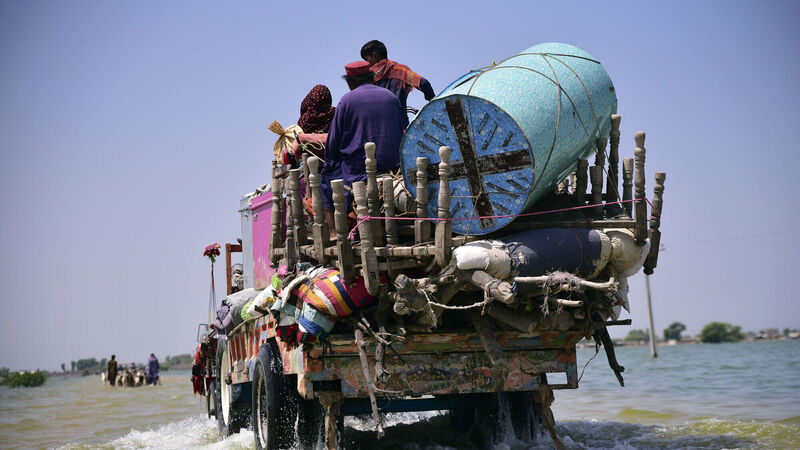Cop27: The polluter pays? Globally, not really

One-third of the Pakistani population has been made homeless by the recent floods, yet the UN humanitarian appeal for the floods is set at only $472.3m (just over 1% of what is needed). Picture: AP/Pervez Masih
The defining issue of Cop27, ongoing in Egypt, is loss and damage.
The phrase is unfamiliar, but the following example should explain what’s at stake and why it’s so important to address.
CLIMATE & SUSTAINABILITY HUB
















